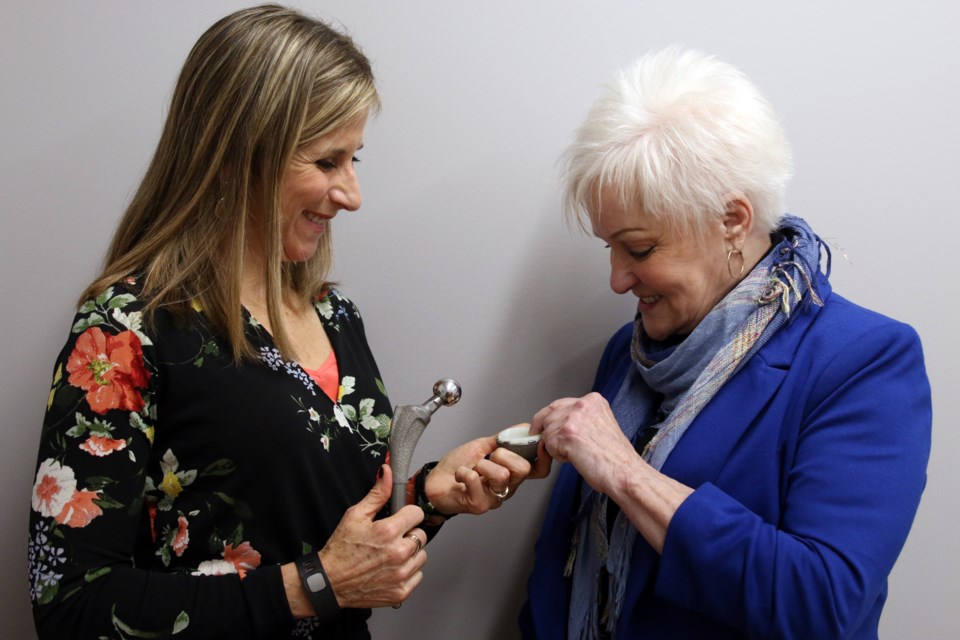THUNDER BAY - For Laurie Horlick, the time from consultation to total hip-replacement surgery took only five months, a far cry away from two years that some patients have been forced to wait in the Northwestern Ontario.
“It was from April to August,” she said. “It was in that time frame for me to have the surgery and I was out in two days from the time I had the operation.”
Horlick is a patient of the new Rapid Access Clinic, which is providing equitable wait times for patients across the region needing joint surgeries through a new central intake and assessment model.
The clinic combines the Regional Joint Assessment Centre and the Inter-Professional Spine Assessment and Education Clinics and is mandated by the Ministry of Health and Long Term Care and in partnership with the North West Local Health Integration Network.
“When we started our program, patients were waiting about nine months for a consultation and anywhere from one to two years for hip or knee replacement surgery,” said Caroline Fanti, program director for the Regional Orthopedic Program. “Our patients now are waiting four weeks for a consultation and we are hitting 90 per cent of our patients receiving their surgery within six months.”
It does not matter where a patient lives in the Northwest Local Health Integration Network, all referrals come into Thunder Bay and are triaged and prioritized to determine how quickly a patient can see a specialist.
“The ministry has recognized the value of these rapid access programs where patients are referred into a central intake throughout the North West LHIN into one location,” Fanti said. “Patients are guaranteed faster access times for their consultations as well as their surgeries.”
Patients also have the option to choose where they would like to have their consultation, with Dryden, Fort Frances, Kenora, and Thunder Bay all available to provide consultations and follow-up care. Even surgeries can be available in all four locations as well, depending on surgeon availability. Consultations can also be done electronically with telemedicine conferencing if a patient is not able to travel to any of the major centres.
“We really have been able to provide more streamlined care for patients and advance the process,” said orthopedic surgeon, Dr. David Puskas. “This is the most modern arthropastic program in the world.”
“Everybody likes to make progress, everybody likes to be leading, everybody likes to have the idea that their ideas are being translated into action,” Puskas continued. “For me on a personal basis, it’s been very gratifying to see the build that has taken place.”
Puskas added that on a professional level, the Rapid Access Clinic allows him to see more people who need to see him.
“I’m no longer dealing with the comment: ‘What, I waited two years for you to tell me this?’” he said. “Because they have already been in and saw somebody who tells them you are not an operative candidate for these reasons. They don’t have that long wait for an adequate consultation.”
Additional funding will allow the clinic to handle shoulder, foot and ankle, and comprehensive spine care in the future. Fanti said reducing wait times for surgeries reduces stress and anxiety among patients right across the region.
The Rapid Access Clinic has been operational since last April. Horlick said with the more streamlined system and the dedicated staff and medical staff, it makes the process much less stressful and her quality of life much better.
“I would recommend highly to anyone who needs it rather than the pain I went through for a whole year to where I stand right now,” she said. “It’s just amazing. My pain is like a two and I can manage it without any medication.”
“I know people who have struggled just trying to find the proper channels to go through to get to where they need to be and this was so easy,” she continued. “Everything was just put into place. I didn’t have to worry about anything.”
